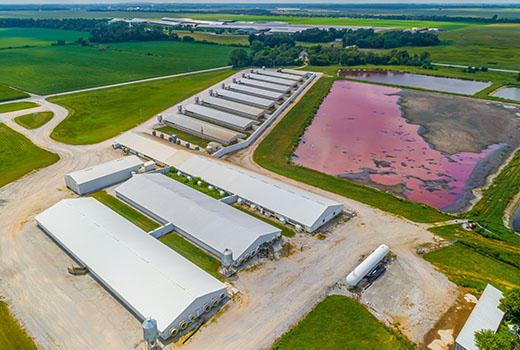
May 17, 2023Animal Law & Policy ProgramThe Intersectionality of Environmental Injustice, Other Societal Harms, and Farmed Animal Welfare
Former Visiting Fellow Laura Fox's latest publication, which she workshopped during her time with ALPP, explores the profound societal implications of factory farming, including its devastating impact on animal welfare, the environment, and its disproportionate harm on already disenfranchised communities. It argues that farmed animal welfare is a crucial component of environmental justice.
How we treat nonhuman animals (“animals”) not only reflects the morals and values of society, but our treatment also has enormous effects on society. Our actions toward farmed animals, in particular, cause immense suffering and devastating impact. Building upon a concurring opinion drafted by Judge J. Harvie Wilkinson III of the Fourth Circuit, this article discusses the myriad environmental, animal welfare, and societal harms of factory farming. Addressing the underlying animal-rearing practices that breed these harms will abate many of them. Such practices include caging animals in spaces so small they cannot turn around, warehousing animals in structures with no outdoor access, collecting tons of gallons of animal waste and disposing of it in the surrounding environment, and slaughtering animals at such high rates and line speeds that food and worker safety are put on the line. These actions disregard animal welfare and have enormously harmful external environmental and societal consequences. Black, Indigenous, People of Color (BIPOC) and people experiencing poverty are affected the most by each of the associated harms. These intersectional injuries demonstrate that farmed animal welfare is an integral component of environmental justice.
The full article can be accessed, thanks to the open-source funding provided by the ASPCA.
